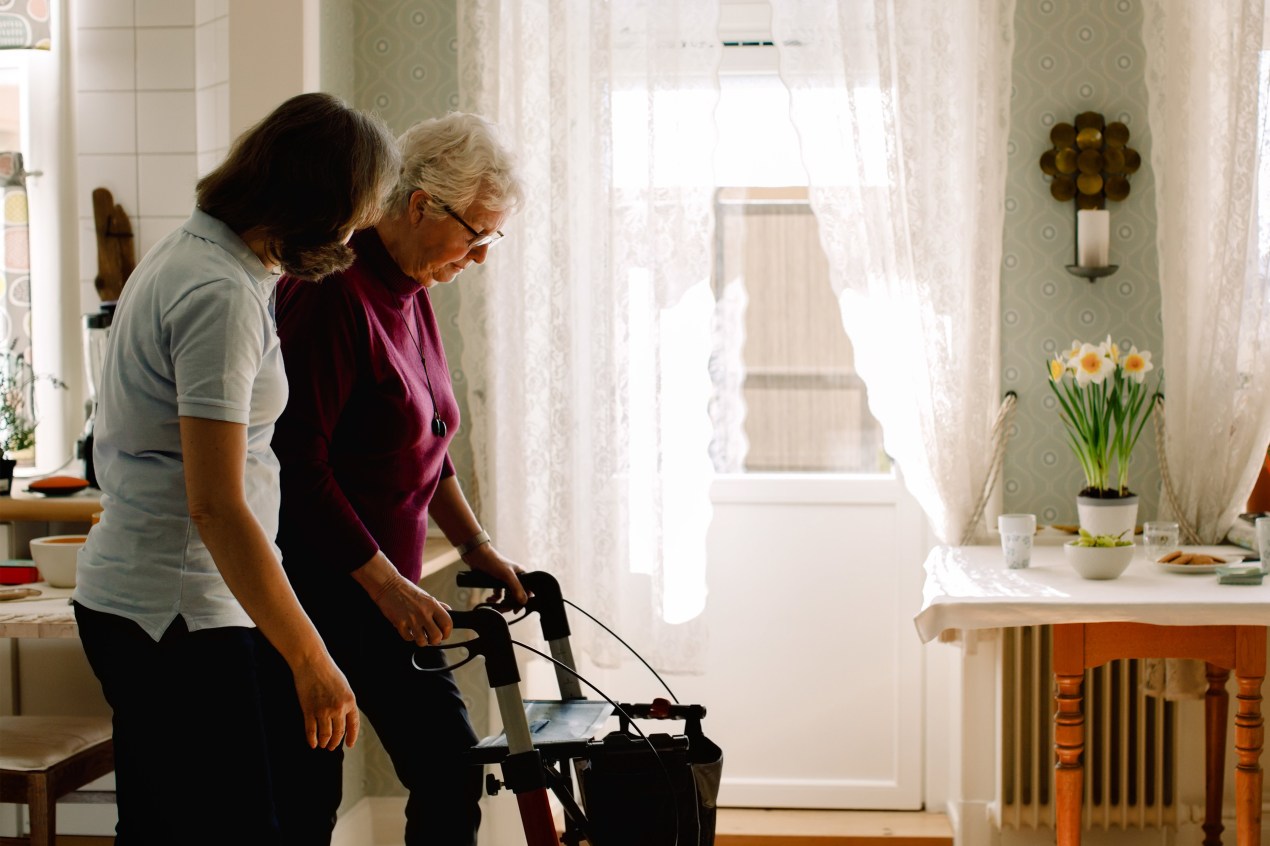How to Provide Meaningful and Customized Dementia Treatment
The stipulation of purposeful and personalized mental deterioration treatment needs a nuanced understanding of each individual's unique history and choices. Treatment methods should be tailored to engage the individual in ways that reverberate with their past experiences, thus promoting psychological connections and improving general well-being.
Understanding Dementia Originality

Treatment providers must examine cognitive capabilities, emotional states, and behavioral patterns to produce customized care plans. This may consist of adjusting communication styles, utilizing acquainted regimens, and utilizing meaningful activities that reverberate with the individual's previous experiences. For instance, involving a person with an interest for songs through musical activities might evoke favorable memories and improve emotional well-being.
Moreover, recognizing individuality fosters a compassionate approach that appreciates the self-respect and autonomy of those coping with dementia. It urges caretakers to listen proactively, observe behavior signs, and stay adaptable in their caregiving techniques (memory care facilities charlotte). By focusing on individuality, caregivers can not just improve the quality of life for those with dementia however also construct a much more profound understanding of their distinct perspectives, eventually bring about extra effective and empathetic treatment
Structure Depend On and Rapport
Establishing trust fund and rapport is fundamental in mental deterioration treatment, as it produces a secure and supportive atmosphere for individuals influenced by the condition. Structure these links needs constant, compassionate communications that focus on the requirements and feelings of the person. Caretakers should come close to communications with empathy, recognizing the one-of-a-kind obstacles faced by those with mental deterioration, including memory loss, complication, and psychological distress.
Efficient interaction is essential in this procedure. Caretakers must utilize clear, simple language and non-verbal hints to convey understanding and support. Active paying attention shows regard and validation, enabling individuals to share themselves without anxiety of judgment. Furthermore, maintaining a calm behavior can assist ease stress and anxiety, promoting a feeling of safety and security.
Familiarity with daily activities and caregivers advertises a feeling of security, allowing individuals to really feel even more at convenience. By doing so, caretakers strengthen the person's identification, promoting self-respect and respect, eventually leading to stronger, extra significant partnerships in the context of dementia treatment.
Tailoring Activities and Engagement
Involving individuals with dementia through tailored tasks can considerably boost their high quality of life and foster a much deeper link between caretakers and those in their care. Customization is important, as it acknowledges the one-of-a-kind backgrounds, interests, and capabilities of each individual. Activities need to be designed to stimulate cognitive features, advertise physical activity, and encourage social communication, all while remaining satisfying and meeting.
To tailor activities effectively, it is vital to assess the person's preferences and cognitive capabilities. For circumstances, some might find delight in horticulture, while others may value songs or art. Simple, familiar tasks can evoke favorable memories and give a sense of accomplishment. Additionally, incorporating aspects of regimen can use comfort and stability, permitting people to involve with tasks extra confidently.
Caregivers can boost engagement by getting involved alongside the individuals, cultivating an interactive and supportive atmosphere. It is additionally essential to continue to be adaptable and adaptive, readjusting activities as required based upon the person's power read levels and state of mind. Inevitably, meaningful engagement with customized tasks not just boosts individuals with dementia however likewise improves the caretaker partnership, advertising common enjoyment and understanding.
Efficient Communication Methods
Reliable communication is essential in mental deterioration treatment, as it fosters a sense of connection and understanding between people and caretakers experiencing cognitive decline. Using efficient interaction techniques can dramatically improve the quality of communications and reduce aggravation for both events.
Firstly, making use of basic, clear language is necessary. Short sentences and familiar words assist people comprehend and react better. Additionally, keeping a calm and positive tone can develop an encouraging environment, which is vital for individuals that might really feel baffled or anxious.
Non-verbal communication plays a substantial role too. Caregivers ought to focus on body movement, faces, and motions, as these signs can commonly share greater than words - memory care charlotte. Establishing eye call and utilizing mild touch can also strengthen connections and share compassion
Active listening is one more key part. Caretakers need to be attentive, allowing individuals to reveal themselves totally, even if their speech is uncertain or fragmented. This lionizes and encourages much more open interaction.
Last but not least, confirming experiences and feelings is this important. Recognizing emotions, despite their basis actually, can provide comfort and strengthen the caregiver-individual connection, advertising a much more supportive atmosphere.
Sustaining Family Involvement
Family involvement plays a considerable function in the general treatment and support of people with dementia. Engaging member of the family creates a collaborative setting that enhances the high quality of treatment, cultivates psychological connections, and makes certain that the unique needs of the individual are fulfilled. Member of the family commonly have vital insights into the individual's history, preferences, and habits, which can be vital in creating customized treatment approaches.

Moreover, relative can be encouraged to take part in day-to-day treatment tasks, such as involving in meaningful conversations or helping with acquainted regimens. This not just assists sustain the individual's sense of identity yet likewise strengthens domestic bonds. Inevitably, by cultivating a comprehensive technique that values family members contributions, treatment companies can improve the general experience for both individuals with dementia and their enjoyed ones.
Conclusion
In verdict, providing individualized and purposeful mental deterioration care necessitates a comprehensive understanding of each person's special history and preferences. Establishing trust and rapport through caring interactions you could look here is essential for developing a safe environment. Tailoring activities to resonate with personal passions enhances emotional wellness and promotes dignity. Reliable communication methods better sustain this procedure, while actively involving member of the family improves the caregiving experience and promotes deeper connections. Jointly, these strategies add to improved top quality of life for individuals with mental deterioration.
The provision of customized and significant mental deterioration treatment calls for a nuanced understanding of each person's unique background and preferences. By doing so, caretakers enhance the person's identity, promoting self-respect and respect, ultimately leading to more powerful, extra significant connections in the context of mental deterioration treatment.
Involving people with mental deterioration through tailored activities can significantly boost their top quality of life and promote a much deeper connection between caretakers and those in their treatment.Family members involvement plays a significant duty in the overall treatment and assistance of people with dementia. Inevitably, by cultivating a comprehensive strategy that values family members contributions, treatment companies can enhance the total experience for both individuals with mental deterioration and their liked ones.
Comments on “Remarkable Memory Care Charlotte: Strategies for Involving and Supporting Residents”